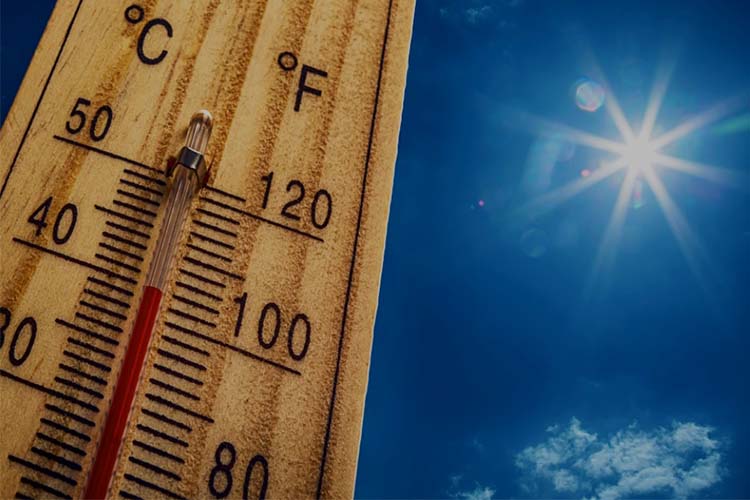
A rundown of the important decisions that went into calling TJ’s first heat day and the possibility of future ones.
On September 9th and 10th, about a dozen Denver Public Schools closed early or entirely due to the heat; Thomas Jefferson High school was one of them. The TJ faculty announced that students would have a shortened day on Friday the 10th due to the high temperatures in classrooms.
While this was unexpected to most, the majority of the student body was excited to get out of school before lunch and start their weekend early. But before this announcement could be made, TJ’s principal, Michael Christoff, had to evaluate all of the factors to call this heat day. Unlike the snow days students know and love, heat days are called at the principal’s discretion in each school building. Christoff recalls the high temperatures on Thursday and Friday, the days he contemplated calling a heat day. “So what happened was Thursday was hot; it was like 95, I think… since school started, Thursday was the hottest day, and Friday was supposed to be even hotter.” That Thursday evening, it was announced that on Friday, all classes would be held in the morning, and students would be dismissed by noon.
Many Denver residents were shoveling snow off our car windshields a year ago, so these hot days come as a huge shock. CBS Denver reported that September had broken many heat records, as we have reached 10-15 degrees above previous years. Christoff said, “This is the first day that we’ve ever [called a heat day]. So the first one that I’ve been a part of in my 21 years in DPS.” Christoff worked with Tom Conroy, the facility manager, to determine just how hot each classroom would get and whether or not it would be safe to have people in the building for the full school day. This being the first heat day TJ has ever had to call on record, the main concern was safety. “The fear was if we have everybody in the school, especially wearing masks, is this really safe? Is this a good idea? We don’t want kids passing out or teachers, too,” Christoff explained.
Elle Benson, a senior at TJ, recalls passing out in school on a particularly hot day: “It was my anatomy class. I do have underlying conditions (I am anemic, and I do have low blood pressure); however, one of the factors that definitely went into [passing out] was the fact that the class was extremely hot and I had to wear an apron, goggles, and a mask, which all contributed to overheating.”
This is just one of the many examples of the different ways that people will have to adapt to the increasing temperatures due to climate change. Christoff and his administration expect to be dealing with heat days more often: “I don’t see why it wouldn’t be [more frequent]. I mean, that’s the Earth continuing to get warmer,” Christoff concluded. Administration and faculty members will be forced to anticipate hotter classrooms; it is just one more safety precaution our administration is forced to make. Without any air conditioning in sight in the near future and temperatures on the rise, TJ families can count on getting more heat days. Luckily, air conditioning is expected to be installed in 2023!